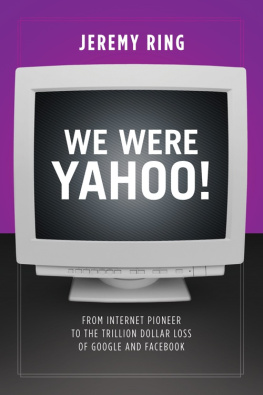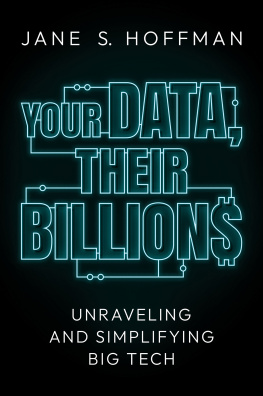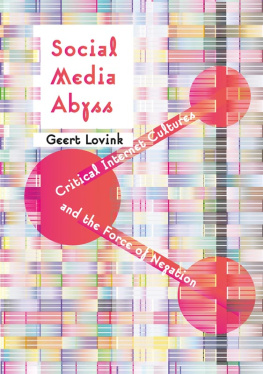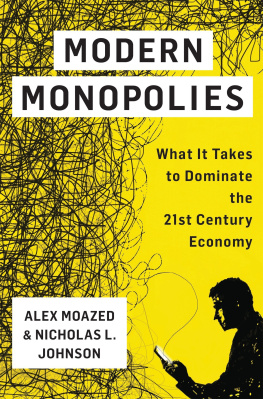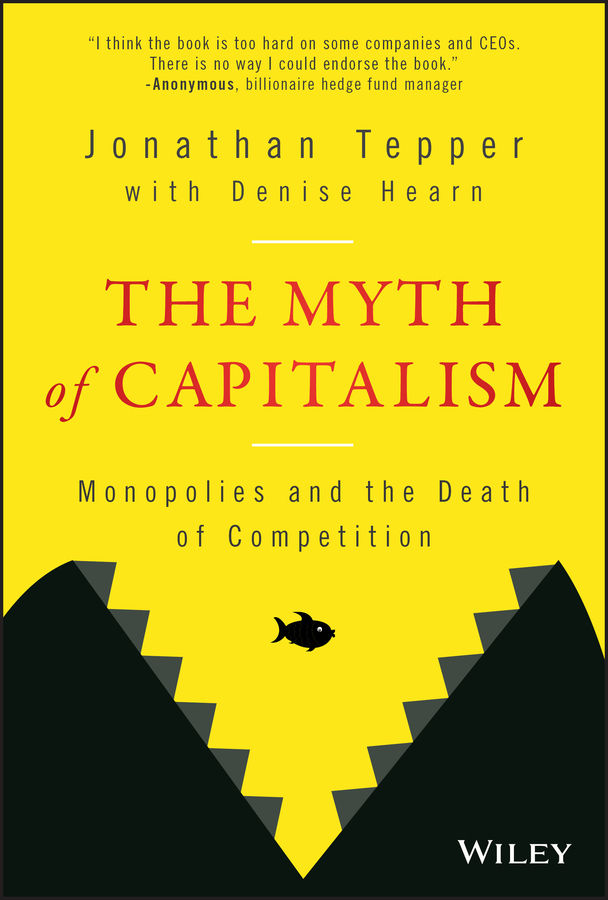
Table of Contents
List of Tables
- Chapter 2
List of Illustrations
- Chapter 1
- Chapter 2
- Chapter 3
- Chapter 4
- Chapter 6
- Chapter 7
- Chapter 8
- Chapter 9
- Chapter 10
Guide
Pages
I think the book is too hard on some companies and CEOs. There is no way I could endorse the book.
Anonymous, billionaire hedge fund manager
Capitalism without competition is not capitalism, writes Jonathan Tepper in The Myth of Capitalism. He is right. After decades when most economists dismissed antitrust actions as superfluous so long as consumers were not the victims of price-gouging, we are slowly waking up to the reality that monopoly capitalism is back and it can be harmful even if its core products (as in the case of Google and Facebook) are free. But its not just Big Tech thats killing competition. As Tepper shows in this engagingly written polemic, theres also excessive concentration in air travel, banking, beef, beer, health insurance, Internet access, and even the funeral industry. If you want to understand the real cause of rising inequality, discard Piketty and read Tepper instead. This is a tract for the times with a rare bipartisan appeal.
Niall Ferguson, Milbank Family Senior Fellow, the Hoover Institution, Stanford, and author of The Ascent of Money
Tepper and Hearn have written an impressive and important book, documenting via their own research and that of many scholars, the very substantial increase in concentration on the supply side of US industry, leading to a decline in competition and a substantial shift in market and political power away from consumers and labor and toward the owners of capital. The consequences extend to rising inequality, slowing productivity growth, and shifts in the pattern of regulation in favor of corporations. Pieces of these growth patterns have been described before. But this book uniquely pulls it altogether. One hopes that it will have the impact that it clearly deserves.
Michael Spence, Economics professor at Stern School of Business NYU, Nobel Prize in Economics (2001)
Whats wrong with American capitalism today? Why is it so good for the elite, and so bad for everyone else? Is inequality the problem? Tepper and Hearn make the case that inequality is the symptom, not the disease. The problem is too little competition, not too much. They provide an immensely readable and persuasive account, superbly well-informed by a mass of recent data and research.
Sir Angus Deaton, Princeton University, Nobel Prize in Economics (2015)
A broad-ranging and deeply-researched analysis of the inexorable growth of monopolies and oligopolies over the past four decades. Tepper makes a compelling case that the governments failure to rein in tech titans and other corporate behemoths is at the root of perhaps the most troubling macroeconomic trends of our time, including rising inequality and slowing productivity. Clear and highly accessible, the book takes no prisoners, arguing that monopolists funding and sloppy thinking has corrupted every aspect of the system, from politicians to regulators to academics.
Kenneth Rogoff, Thomas D. Cabot Professor of Public Policy and Professor of Economics at Harvard University, author of the bestselling book This Time is Different
Slowing growth and rising inequality have become a toxic combination in western economies, notably including the US. This combination now threatens the survival of liberal democracy itself. Why has this happened? Some blame an excess of free-market capitalism. In this well-researched and clearly-written book, the authors demonstrate that the precise opposite is the case. What has emerged over the past forty years is not free-market capitalism, but a predatory form of monopoly capitalism. Capitalists will, alas, always prefer monopoly. Only the state can restore the competition we need, but it will do so only under the direction of an informed public. This, then, is a truly important book. Read, learn and act.
Martin Wolf, Chief EconomicsCommentator, Financial Times
Tepper and Hearn make a compelling case that the United States economy is straying increasingly far from capitalism, a process that is having deleterious consequences for both productivity growth and inequality. The villain in their story is the growth of monopolies and oligopolies, abetted in many cases by government policies that either turned a blind eye to increasing concentration or actively encouraged it by creating rules to entrench incumbents. Their case is animated by passion but delivered in a detailed, analytical and factual manner that is still enjoyable to read. More importantly, it is not an excuse for despair but a specific set of policy recommendations for action.
Jason Furman, Harvard Kennedy School, Chairman of the Council of Economic Advisers (2013-17)
Whatever happened to antitrust? In the US, it has for many years been effectively dormant as a tool to limit monopoly and monopsony power. Internet shopping isn't much help to a firm buying an input made by only one supplier, nor a consumer choosing between different brands all made by the same giant company, and workers can't easily switch to new locations and employers. The indisputable trend of rising concentration in American industry may be a major factor in the trend fall in labor's share of national income. This engagingly written book concludes with a powerful set of proposals to reverse the trend and make the capitalist market economy function as it should. Important a must read.
Richard Portes CBE, Professor of Economics, London Business School, Founder and Honorary President, Centre for Economic Policy Research
In a compelling and deeply researched polemic, Tepper and Hearn describe a market that is broken. Increasingly, instead of delivering the benefits of competition to all, it is driving monopoly profits to the few. Regulatory and policy capitulation in the face of market concentration has put a dead weight on productivity and fostered inequality not just in the United States but globally. Their call to free markets from private monopolists and oligopolists should unite both left and right the world over.
Charles Kenny, Senior Fellow, The Center for Global Development, Author of Getting Better
This is an extremely important, timely and well researched book. Jonathan Tepper is himself a successful entrepreneur and he knows what good capitalism looks like. The current system, suborned by market abuse, corporatism, cronyism and regulatory capture and resulting in increasing inequality and anger amongst the wider population is badly in need of reform. If it is not reformed by people who believe in markets it will be reformed by people who don't and that would be bad news for everyone. Jonathan Tepper understands this well and I recommend his book to every member of the US Congress.
Sir Paul Marshall, Chairman of Marshall Wace Hedge Fund Group
Tepper and Hearn point out that, if current trends are left unchecked, the light at the end of the tunnel is a train driven by monopolists and oligopolists that a privileged few can afford a ticket on. This narrative of monopoly profits translating into lobbying and influence-peddling affects all of us in the price of drugs, airplane tickets, cable bills, banks, and even smartphones. The Myth of Capitalism should be required reading by regulators, students, and anyone with a stake in America's future.
J. Kyle Bass
Next page

